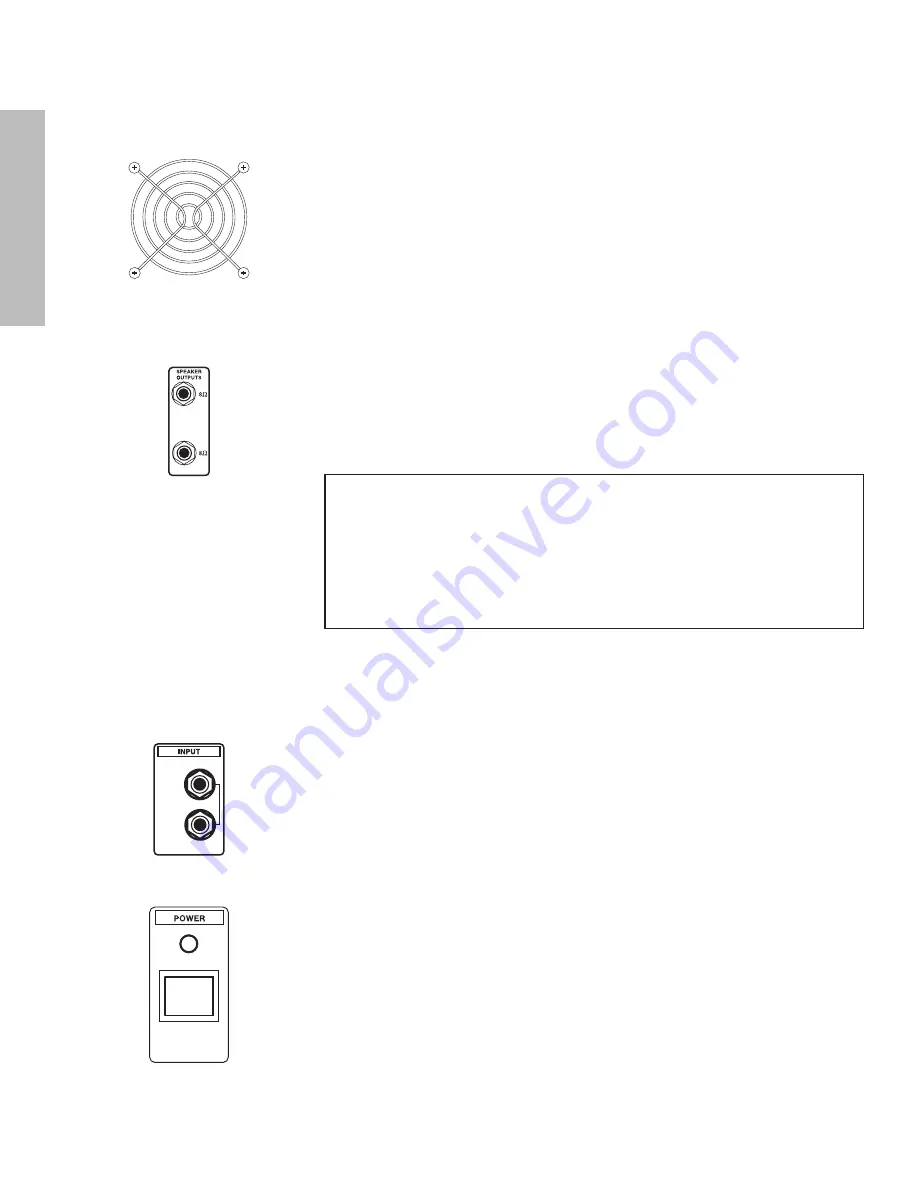
8
Setting Up and Using the Model 3500/5500
WARNING: Hartke amplifiers can deliver very high power levels. Driven to
full power, they can damage connected loudspeakers, regardless of brand,
size, or configuration. Care should be taken not to strain connected
loudspeakers as this can cause permanent damage and will degrade the per-
formance of the entire system. If you see connected loudspeakers moving
excessively, turn your system down immediately or use the equalization and/
or compression controls to reduce the amount of subharmonic (extremely
low frequency) signal.
Setting up your Hartke Systems 5500 Bass Amplifier is a simple procedure which
takes only a few minutes:
1. Remove all packing materials (save them in case of need for future service)
and decide where the amplifier is to be physically placed. To avoid potential
overheating problems, be sure that the rear panel is unobstructed and that there
is good ventilation around the entire unit, particularly behind the rear-panel fan.
2. Begin by hooking up your bass cabinet or cabinets, using the 1/4” unbalanced
Speaker output connectors on the rear panel; it is never a good idea to power up
any amplifier that is not connected to loudspeakers. We recommend the use of a
single 4 ohm cabinet or two 8 ohm cabinets. Hartke amps are optimized for use
with Hartke bass cabinets, although other brands of speakers can be substituted.
Any appropriately rated bass cabinet with a minimum impedance of 4 ohms (that
is, 4 ohms or greater) can be used. In order to ensure correct phase correlation,
the tip of the Model 3500/5500 speaker jack should be connected to the “+” (hot)
input of your loudspeaker, and the sleeve of the Model 3500/5500 speaker jack
should be connected to the “-” (ground) input of your loudspeaker.
3. Next, connect the 3-pin AC plug into any grounded AC socket. Don’t turn the
amplifier on just yet, though.
4. Use a standard music instrument cable to connect your bass to the appropri-
ate Input jack on the front panel (if your bass has active circuitry,* connect it to
the “Active” input; if not, connect it to the “Passive” input). On the front panel
of the Model 3500/5500, set the Master volume control to “0” (fully counter-
clockwise) and set both Pre-Amp A (Tube) and B (Solid State) knobs to “5” (the
twelve o’clock position). Set the Compression knob to its “Off” position (fully
counterclockwise—you’ll hear a click) and set both Contour knobs to their center
detented “0” position. Finally, set the graphic equalizer In/Out switch to its “Out”
position.
5. Press the front panel Power switch in order to turn on the amplifier. After
approximately three seconds, you’ll hear a click, indicating that the relay protec-
tion circuitry has completed cycling and that power to the system has been pro-
vided.
6. Set the output of your bass to maximum and then, while playing, slowly turn
the Master volume control up until the desired level is achieved. If you hear dis-
tortion even at low amplifier Master volume settings, back off the output of your
bass (or check for a faulty cable).
* Bass guitars that have active circuitry normally require a battery for the circuitry to
be functional.
PASSIVE
ACTIVE
ENGLISH
8












































